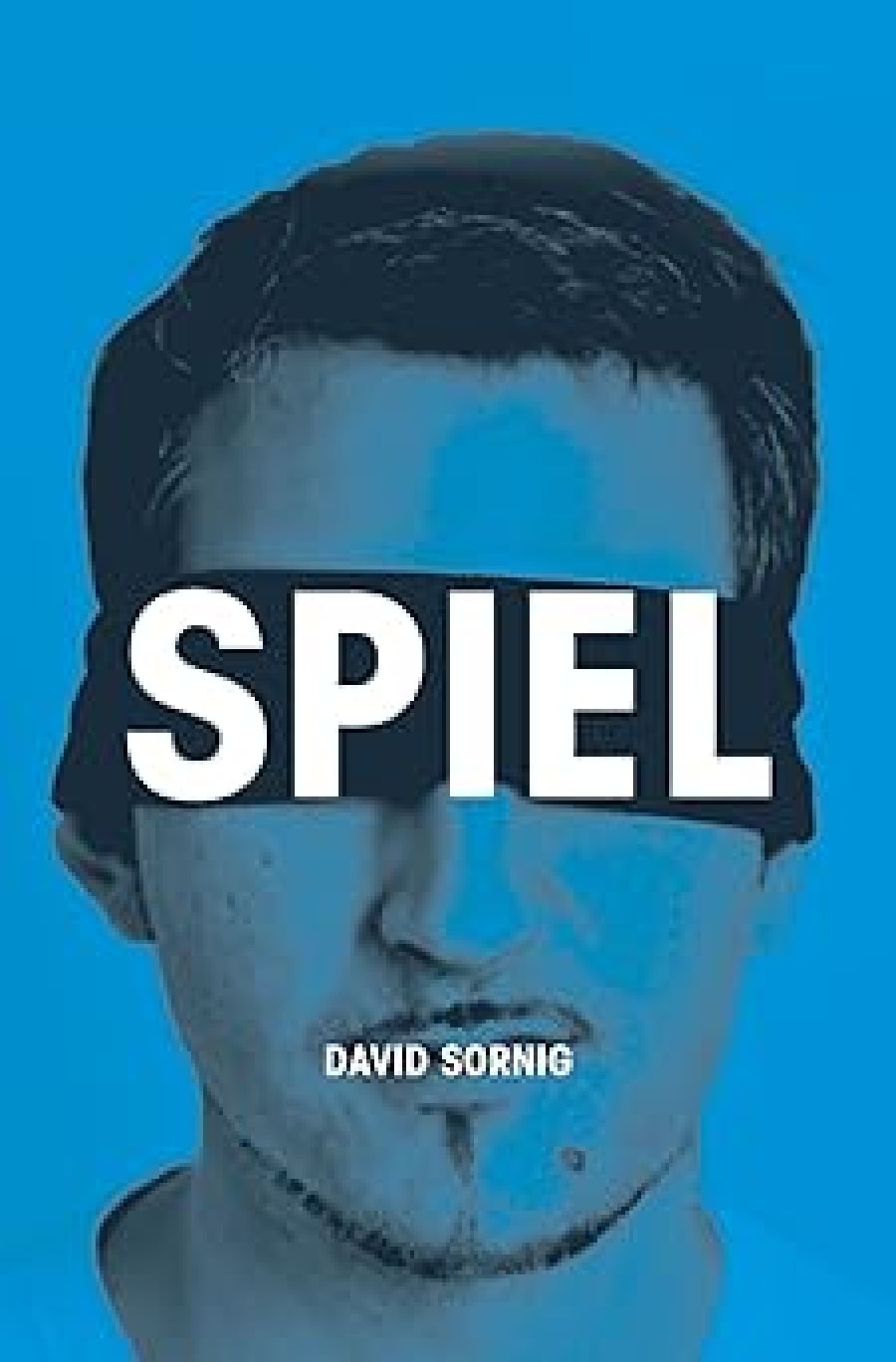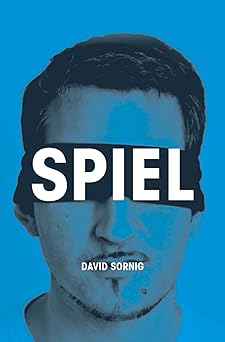
- Free Article: No
- Contents Category: Fiction
- Review Article: Yes
- Article Title: Dark wonderings
- Online Only: No
- Custom Highlight Text:
Back in 2007, his academic cap firmly fastened, David Sornig wrote in the pages of Antipodes: ‘Since the fall of the Berlin Wall, the city [of Berlin] has, more than any other, become thought of as the place where, in Fukuyaman terms, history actually ended. In this sense it is the eschatological city par excellence.’ It is a curiosity of sorts that Australian writers have been in the front stalls documenting this apocalyptic vision.
- Book 1 Title: Spiel
- Book 1 Biblio: University of Western Australia Press, $26.95, 245pp
- Book 1 Cover Small (400 x 600):

But why Berlin? For Karl, Spiel’s narrator, it is inevitable. It is a matter of family – to be precise, the recent death of his Onkel Hans. Coincidence has played a part, too. As a child, he wrote letters to a pen pal in Berlin, presenting his invisible correspondent with his thoughts on Nazis, walls and girls at school. This pen pal, Rosa Stumm, has her own story to tell, one which is revealed to us through carefully manicured GDR reports, heavy with the deletions of names and places. By the waters of the Spree, Karl sits down and weeps, but his mind returns to scenes of his childhood and adolescence in suburban Melbourne, a mélange of friends, girlfriends and university posturings. If this sounds wilfully obscure, then the summary at least mirrors the numerous threads the reader is presented with in Spiel. The book’s meaning grows in its careful intertwining of these narrative strands.
Where Dead Europe is nihilistic, Spiel is elegiac. It is too lost and saddened to rage or shock. Its mode is lyrical and frequently tender. The book, for all its dark wonderings and destroyed lives, is fundamentally about a man obsessed with ungraspable women, be they vividly present teenage schoolgirls or German ghosts. Spiel shares Dead Europe’s Dantean echoes and prurient curiosities, though with a more forcefully scatalogical bent.
The book has many pitch-perfect or resonant sections of writing. In Karl’s letters, Sornig nails the satisfied precocity of the child’s voice. Here is Karl in his first letter to Rosa:
Some other kids at my school have penpals who live in other countries, but if they are a girl then they write to a girl and if they are a boy then they write to a boy … I picked you as my pen-friend because I want to know what it is like to live behind a wall. Is it like keeping a secret all the time? I think everyone should have a secret … Are you allowed to watch TV in East Berlin?
The early scenes describing Karl’s involvement with a Ukrainian family headed by a volatile father are equally strong, capturing that uneasy mix of attraction and bewilderment that defines so many childhood friendships divided along ethnic lines. The later Australian sections of the novel – involving Karl’s flirtation with Albert Speer and Nazi paraphernalia – are also rewarding, capturing with queasy precision his self-conscious undergraduate nihilism.
Unfortunately, the book struggles to maintain momentum in its second half, where resolutions are demanded and Berlin’s tragic history comes to dominate proceedings. While the earlier Berlin sections of the novel are a precisely calibrated mixture of dream and reality, the later sections, impatient with plot and revelation, are comparatively less gripping.
Spiel is also upended occasionally by Sornig’s attempt to render his narrator’s inner state in the most evocative manner possible – for example: ‘Rosa Stumm has brought me to the border of my own death and made me a pawn in a game of Russian roulette.’ At other times there is a too effortful lyricism. Here is Karl, the architecture student, pondering present-day Berlin: ‘My architectural mind sees it, rippling and alive. A fabric, the ciphered threads of the secret human message pulled taut like a skin over all desire.’ These problems only affect the Berlin sections of the novel, however. Sornig’s writing is surer in the earlier evocations of childhood and the skilful mimicry of government documents.
Does it sound parochial to say that that such an ambitious and frequently successful novel, so interested in exploring memory, redemption and fate in the context of eschatological Berlin, is at its best when it sticks close to home? I hope not. One of the most exciting things going on in Australian literature right now is its determined roaming beyond national borders, a journeying taken to its exhilarating limits in Nam Le’s The Boat (2008). The Miles Franklin Award’s rule regarding eligibility – that the novel of the year ‘must present Australian life in any of its phases’ – now looks outdated.


Comments powered by CComment